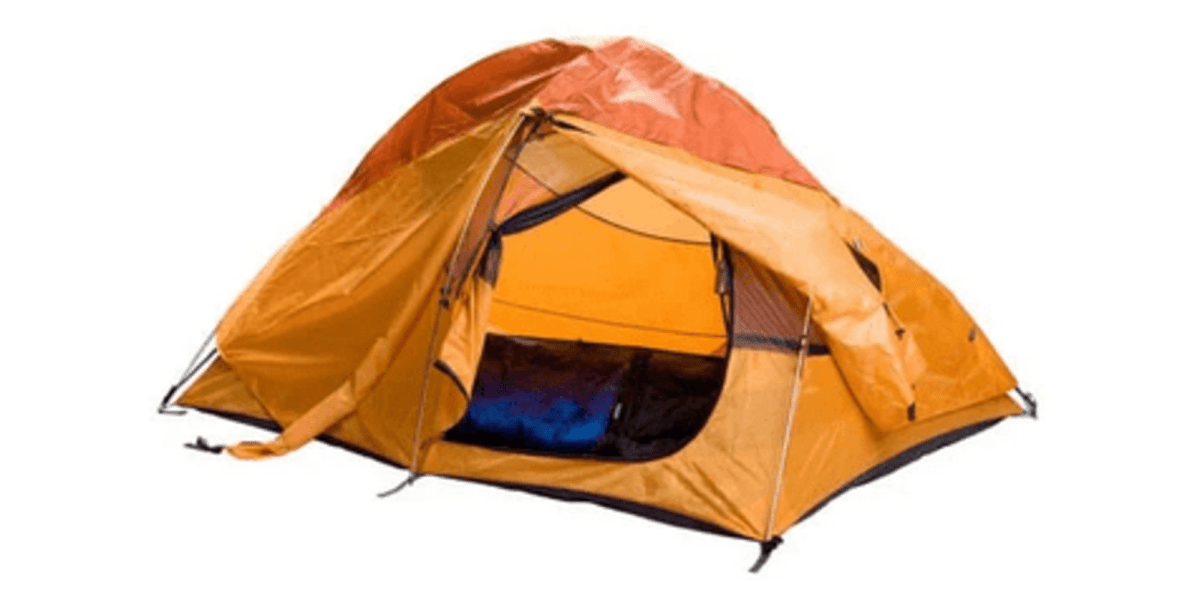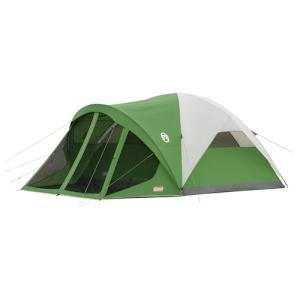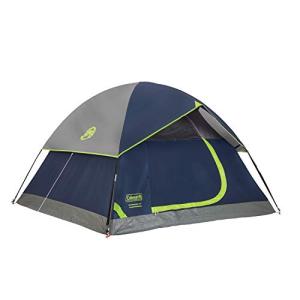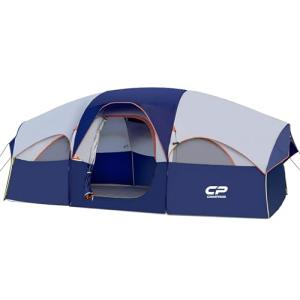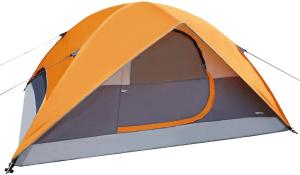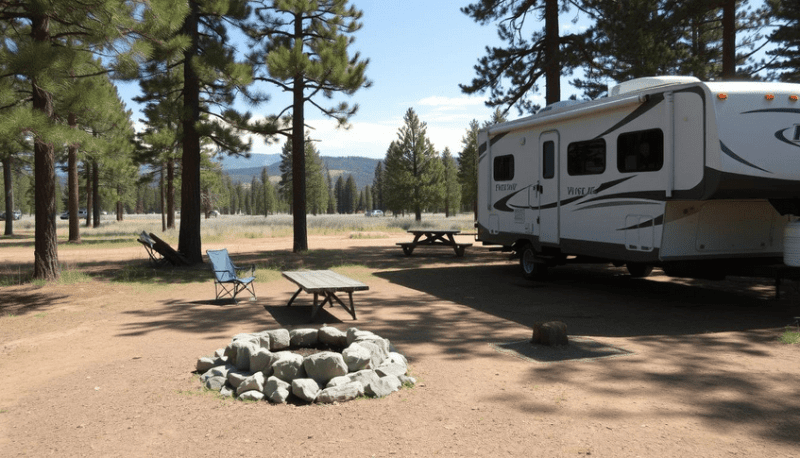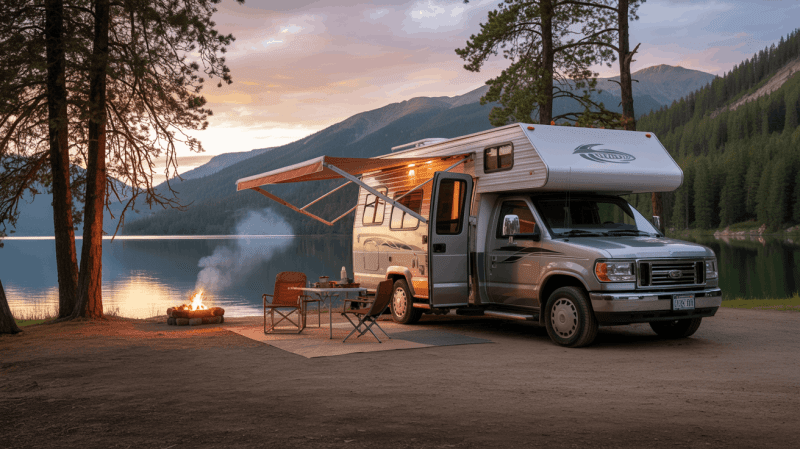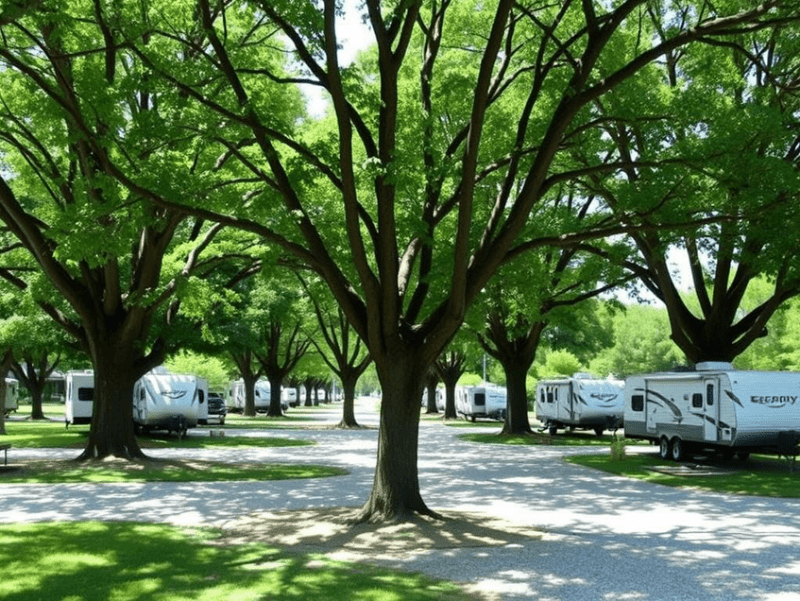Choosing the right tent for backpacking is essential for an enjoyable outdoor experience.
Lightweight backpacking tents offer a great balance between portability and comfort. These tents are designed for those who prioritize weight without sacrificing quality. They help campers stay dry and protected from the elements while remaining easy to carry on long hikes.
When selecting a lightweight backpacking tent, it is important to consider several key factors.
The tent's weight is critical, as heavy tents can add unnecessary strain to your pack.
Additionally, the materials used can affect durability and weather resistance.
Size is another important aspect; the tent should provide adequate space for sleeping and storing gear without being too bulky.
Other features like setup time and ventilation can also impact your camping experience.
We examined various lightweight backpacking tents to help you find the best match for your needs and preferences.
Best Lightweight Backpacking Tents
We have researched and compiled a list of the best lightweight backpacking tents. Each tent offers durability, ease of setup, and comfort for your outdoor adventures. Whether you're a beginner or an experienced hiker, these options will help you find the perfect shelter for your needs.
OneTigris Stella Tent
We recommend the OneTigris Stella tent for those seeking a reliable and lightweight option for various camping conditions.
Pros
- Lightweight at just 4.4 lbs, making it easy to carry.
- Strong waterproof rating of 3000mm for all-weather use.
- Simple setup with flexible poles that save time.
Cons
- Limited space for gear inside the tent.
We found the OneTigris Stella tent to be a solid choice for backpacking.
The lightweight design makes it easy to fit into our packs without adding much weight.
Setting it up is straightforward, even for solo campers, thanks to the flexible pole design.
We appreciated its waterproof capabilities during a recent trip, especially when unexpected rain rolled in.
We felt secure, knowing our bodies were protected by its strong materials. The tent also kept the warmth in, which is crucial for colder nights.
On the downside, we noticed space can get tight for two people, particularly with gear inside. For those who prefer a bit more room, it might be better suited for one person with plenty of gear.
Night Cat Backpacking Tent
This tent is a solid option for solo campers looking for a lightweight and easy-to-use shelter.
Pros
- Very lightweight, making it easy to carry.
- Quick and simple setup process.
- Good storage space for personal items.
Cons
- Not ideal for very cold weather.
We recently tried out the Night Cat Backpacking Tent and were impressed with its lightweight design.
It weighs just around 2 kg, making it easy to carry on hiking trips. Its compact size means it can fit inside any backpack without a problem.
Setting up the tent was a breeze. With just two fiberglass poles, it took us only a couple of minutes to prepare it.
We appreciated the thoughtful design that made it simple to assemble, even in low light or unexpected weather changes.
While it fits one person comfortably, it can snugly accommodate two, especially for quick adventures. However, the space can feel a bit limited for larger individuals or when using extra gear.
We noticed the tent also held up well during light rain, although it may not be the best in extreme conditions.
For the price, the Night Cat Backpacking Tent is a great value for solo adventurers or budget travelers.
Kelty Grand Mesa Tent
This tent is a solid choice for camping trips where we need something lightweight and easy to set up.
Pros
- Quick setup thanks to Kelty Quick Corners
- Lightweight design makes it great for backpacking
- Affordable without sacrificing quality
Cons
- May be too heavy for serious thru-hikers
- Limited interior space for gear
We recently took the Kelty Grand Mesa on a weekend camping trip and were impressed by how quickly we could set it up.The Kelty Quick Corners help keep the poles in place, making assembly a breeze.The tent was ready to go in just a few minutes, and we could relax and enjoy the outdoors.
The tent’s lightweight design shines, especially when we had to hike to our campsite. At just over 4 pounds, it fits easily into our packs without weighing us down. The Shark Mouth carry bag is nice for packing it away afterward.On the downside, we noticed that while the Grand Mesa performed well, it might not handle heavy rains without some careful positioning.A few reports of water seeping in, but it seemed to hold up well during our experience. Overall, this tent offers great value, especially if we need reliability and ease of use on our trips.

OneTigris COSMITTO 2 Person Tent
This tent is a great choice for anyone who needs a lightweight, reliable shelter for outdoor adventures.
Pros
- Lightweight and easy to carry
- Quick and simple setup
- Good waterproofing for wet conditions
Cons
- Limited space for gear with two people
We recently took the OneTigris COSMITTO backpacking tent on a weekend trip, and it quickly became our go-to option for camping.
The setup was impressively fast; within minutes, we had it pitched and ready for the night.
The lightweight materials made carrying it a breeze, even after a long hike.
Spacious enough for two, we found it comfortable, though storage space for gear was tight.
We had enough room for our sleeping bags, but things felt cramped when we both had our packs inside. The two entrances helped, allowing us to access our gear without climbing over one another.
Rain was forecasted, and we appreciated the tent's waterproof traits.
It held up well, keeping us dry even during a downpour. The durability of the materials gave us confidence, especially in windy conditions.
We would recommend the OneTigris COSMITTO for anyone looking for a sturdy and lightweight shelter.
Underwood Aggregator 1 Person Tent
This lightweight tent is a solid choice for solo backpackers seeking ease and comfort in the great outdoors.
Pros
- Very lightweight at just 4.2 pounds, making it easy to carry.
- Quick to set up with a simple design and sturdy materials.
- Waterproof and durable, offering great protection from the elements.
Cons
- Space is limited; it might feel cramped for taller individuals.
Our experience with the Underwood Aggregator tent was quite positive.
Right away, we noticed how easy it was to pack. We appreciated the compact size when the tent is folded down.
The setup was fast, taking just a few minutes. The aluminum poles made it sturdy, and the tent felt secure even in windy conditions.
The waterproof feature was put to the test during a rainy night.
We stayed dry and comfortable inside. We loved the breathable mesh that helped with ventilation, making it pleasant even on warmer nights.
However, we realized the space could be a bit too tight for larger users. It worked perfectly for one person and a sleeping bag but left little room for extra gear.
Buying Guide
When choosing a lightweight backpacking tent, we should start with the weight. Look for tents that weigh around 3 pounds or less for easier carrying.
Key Features to Consider:
- Weather Resistance: Check the waterproof rating. A higher rating means better protection from rain.
- Size and Space: Make sure the tent fits comfortably for our group size. Consider height and living space.
- Setup: Look for tents that are easy to set up. Tent designs with color-coded poles can help with this.
- Material Quality: Lightweight fabric is essential, but it should also be durable. Check the denier rating to understand material strength.
Table of Features to Look For:
| Feature | Description |
|---|---|
| Weight | Aim for 3 lbs or less |
| Waterproof Rating | Minimum 1000 mm is good |
| Floor Area | Consider 20 sq ft or more |
| Peak Height | At least 40 inches |
We should also think about ventilation. Good airflow helps reduce condensation inside the tent.
Another important factor is the price. Set a budget and choose a tent that meets our needs without overspending.
Frequently Asked Questions
Several important factors must be considered when choosing a lightweight backpacking tent. These factors will affect our comfort, ease of transport, and overall hiking experience. Below, we answer common questions that help us make informed choices.
What factors should be considered when selecting a lightweight backpacking tent?
We should consider weight, durability, space, and weather resistance when selecting a tent. The material affects both weight and strength. We also need to think about setup time. Additionally, we should consider features like ventilation and storage pockets.
How do backpacking tent weights impact the overall hiking experience?
The weight of our tent plays a crucial role in how easy it is to hike with. Lighter tents reduce the overall load we carry. This can lead to less fatigue and more enjoyment on the trail, especially during long hikes.
What are the key differences between a one-person and a two-person ultralight backpacking tent?
A one-person tent is lighter and easier to carry but offers less space. It’s designed for solo hikers who prioritize weight. A two-person tent, though slightly heavier, provides extra room for gear or a travel partner.
What are some top recommended lightweight backpacking tents for three persons?
We might consider options like the Big Agnes Copper Spur HV UL3 or the REI Co-op Quarter Dome SL 3 for three people. These tents offer a good balance of weight and space and have features that enhance comfort and durability.
How can one balance cost and quality when choosing a backpacking tent?
To balance cost and quality, we should look for tents that fit our budget and meet our needs. Reading reviews can help us assess the value of different models. Shopping during sales can also allow us to find cheaper high-quality tents.
What advancements in backpacking tent design should shoppers be aware of?
Recent advancements include lighter materials and improved designs for better weather protection.
Many tents now feature easier setup processes, such as color-coded poles.
Innovations in ventilation reduce condensation inside, making our camping experience more comfortable.
DISCLAIMER
This document is provided for general information purposes only and should not be relied upon as providing legal advice, technical, or specific operational guidance to the reader, whether as to the practices described in the document or the applicable legal requirements and regulations.Best Camping Deals. com expressly disclaims any responsibility for liability arising from or related to the use or misuse of any information in this document.
